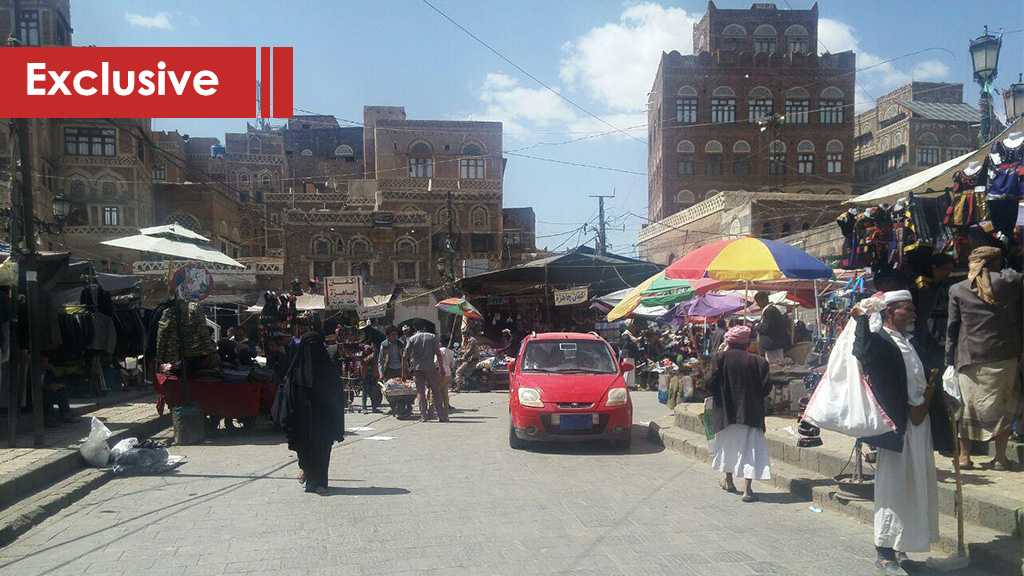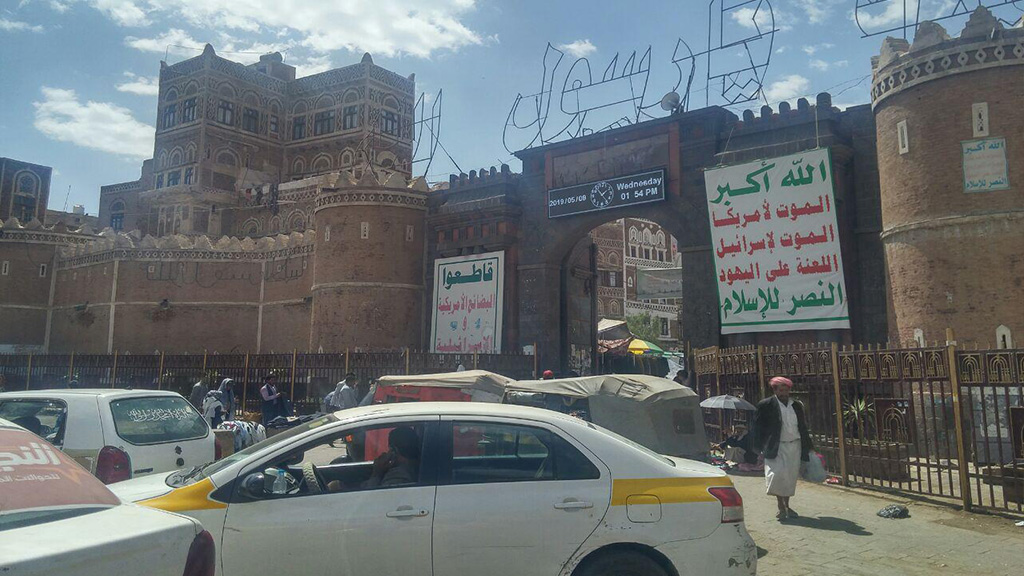
Sana’a – Mohammed Abdo, in his 50s, stands near a sesame stand negotiating its price in the old city of the capital Sana’a on Wednesday’s afternoon on the third day of Ramadan in Yemen.
Abdo expressed his shock at the sesame’s high price before he started to speak on how he used to welcome Ramadan in the past and how it became today after four successive years of the Saudi aggression on Yemen.
“Ramadan in the past was better than nowadays,” Abdo told al-Ahed. “We used to welcome Ramadan while living conditions were all right, but today the cost of living has increased.”
Abdo, who appears to be a farmer, comes from Dhamar province, 93 kilometers (58 miles) southern Sana’a. He said he is in the old city of Sana’a on a special visit and has bought some good ropes for his donkeys.
“I will travel back home now. I ask Allah to guide us, be kind to us and lift up His divine countenance upon us,” Abdo told al-Ahed.
The grand mosque in the old city of Sana’a is under heavy presence of worshippers who gather from all nearby neighborhoods to pray and share reading Quran.

There you will find elder people who know well the old days during which their grandfathers used to welcome Ramadan and the importance of the Ramadan lanterns.
However, to take pictures and interview them inside the mosque needs you to have a prior permission from the security belts of the city, something that takes a long process. Security forces declined our entry to interview them inside the mosque.
Miserable Ramadan
Walking between the city’s old souks, you will see people purchasing their requirements in large numbers as if there is no war nor a blockade, though public servants have been paid sporadically since late 2016 when the Saudi-backed government relocated Yemen’s Central Bank from Sana’a to Aden.
Most segments of society lost their jobs and resorted to work in another profession like Ali Sa’ad Taha, a newspaper vendor but now all he has is one paper on his right hand and on the other hand he carry plastic bags, his new profession.
Taha was passing on a pavement outside the old city of Sana’a as disappointment was clear on his face. The only official newspaper that he had was al-Thawrah, which he was looking for someone to buy.
“I rent an apartment near the Ministry of Defense since 15 years. My sole source of income is selling newspapers,” Taha told al-Ahed. “We now live in a miserable existence. I sell plastic bags as purchasing papers decreased.”
Grave’s Mud is better than this life
Ahmed Qaed, an elder merchant, stands with his son near their shop at the old city of Sana’a where they sell clothes. Qaed has a pessimistic view and think the earth’s interior is better than its surface.
“Ramadan in the past was perfect, but today grave’s mud is better than this life,” Qaed told al-Ahed, pointing out that Yemenis live in a crisis and everybody no longer thinks of the other.
“Everybody thinks of himself, we aren’t reassured, nor comfortable nowadays.”
We used to welcome Ramadan in the past while we were living in peace and security, Qaed said, and goods and foods were cheap.
We were welcoming Ramadan with jingles, but today it is hard to do so, Qaed adds.
Before the war, children of the old city of Sana’a neighborhoods used to gather in one house after sunset and begin running in the streets of the city with lanterns in their hands and sing songs welcoming Ramadan.
This Ramadan is the fifth that Yemenis fast while the Saudi war is ongoing. This war has changed their life and make it like a hell on earth.
With all of this, it’s hard to see a child in the streets of the old city of Sana’a commemorating these traditions or notice a father trying to revive these old habits.
Related Videos
River to Sea
 Uprooted Palestinian
Uprooted Palestinian
The views expressed in this article are the sole responsibility of the author and do not necessarily reflect those of the Blog!
No comments:
Post a Comment